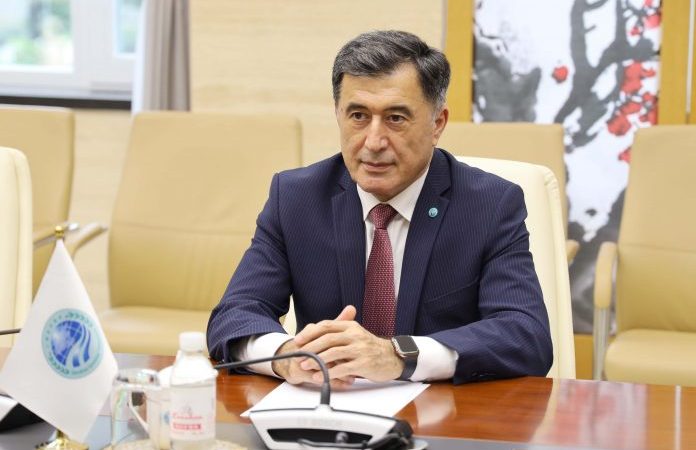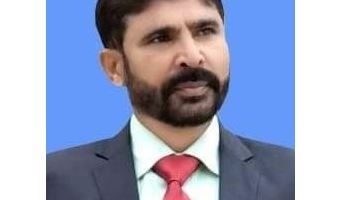“On the occasion of World Teachers”

Vladimir Norov
Since 1994, UNESCO has celebrated World Teachers’ Day every year on 5 October to commemorate the anniversary of the signing of the ILO/UNESCO Recommendation concerning the Status of Teachers in 1966. This important document established the rights and responsibilities of teachers, as well as standards for initial training, continuing professional development, recruitment, employment, teaching, and learning conditions. It contains numerous recommendations on teachers’ participation in educational decision-making.
Besides, in 1997 UNESCO adopted recommendations on the status of higher education teaching staff, which set out the rights and obligations of higher education teaching and research staff. In 2000, the United Nations adopted eight Millennium Development Goals. It should be noted that the international community, in the adopted UN Sustainable Development Goals (SDGs), in particular Education Goal 4, recognizes teachers as key actors in achieving the UN Education Agenda 2030.
World Teachers’ Day is a professional holiday for all those who have connected themselves with educational and upbringing activities: teachers, educators, and other specialists. It is believed that only half of the education is given to children at home, while the rest is due to kindergarten, school, and other educational institutions. It is teachers and instructors who devote themselves every day to educating and culturally enriching the new generation. A teacher is not only a person who teaches science but also a carrier of spirituality and morality. The work of a professional teacher is invaluable and important to society. Sometimes it is thanks to the skilled and meticulous work of teachers that great scientists, artists, writers, and discoverers come to the world. This is why International Teachers’ Day is a holiday that is of particular importance for every country.
The celebration of World Teachers’ Day provides an annual opportunity to take stock of achievements and raise awareness of the challenges faced by teachers and their role in achieving global education goals.
This year’s World Teachers’ Day will be celebrated under the theme “Teachers: Leadership in the crisis, rethinking the future”.
Unfortunately, the COVID-19 pandemic and its associated school closures have directly affected 1.6 billion students at all levels and 63 million primary and secondary school teachers on the planet. In many cases, traditional teaching methods had to be abandoned and teachers had to be provided with online training, which revealed, especially in the first and worst phase of the pandemic, many problems and shortcomings.
Teachers and pupils lacked basic information and communication technology (ICT) tools to organize and participate in online learning. On a global scale, for example, approximately 50% and 43% of pupils, respectively, do not have computers or the Internet at home.
The COVID-19 pandemic is challenging existing education systems, leading to a review of how teachers teach and work in general. The issue of teacher leadership in response to the crisis is not only timely but also critical in terms of teachers’ contribution to distance learning, supporting vulnerable groups, reopening schools, and ensuring that curriculum gaps are reduced.
The selected theme of World Teachers’ Day also examines the role of teachers in building resilience and developing future education and the teaching profession. Importantly, the COVID-19 crisis has created a unique situation to demonstrate pedagogical leadership, creativity, and innovation in education in today’s challenging environment.
Throughout the world, teachers work individually and collectively to find solutions and create new learning environments for their students. The transition to online learning has required teachers to demonstrate their ability to innovate and create. Leading education sector employees have demonstrated great ability and flexibility to adapt to an ever-changing situation so that children and young people can continue learning.
Teacher leadership is essential for inclusive and quality education. Having decided to focus World Teachers’ Day 2020 on leadership, UNESCO and its partners want to draw global attention to this issue and invite education stakeholders to reflect on what teacher leadership means in the context of education 2030. These discussions will also contribute to UNESCO’s Future of Education initiative, which explores how knowledge and learning can shape the future of humanity and the planet.
Because of the COVID-19 pandemic, the celebration of World Teachers’ Day in 2020 will be completely virtual. The virtual celebration will be celebrated as part of a week-long series of interactive online events at UNESCO headquarters and around the world.
More than 800 million young people between 14 and 25 years of age – half the world’s youth – live in the SCO region. This is a huge resource for development, and working in this area is a special priority of the SCO Member States.
In this regard, education is an important area of humanitarian cooperation within the Shanghai Cooperation Organisation.
The preamble to the SCO Charter of 7 June 2002 reads: “The main goals and objectives of the SCO are to strengthen mutual trust, friendship and good neighbourliness between the Member States, and to encourage effective cooperation in cultural, educational and other areas of common interest”.
Under the agreement between the governments of the SCO Member States on cooperation in the field of education of 15 June 2006, the parties support the development of integration processes in the field of education, exchange of experience in the field of educational reforms, promote mutual exchange of students and research and teaching staff of educational institutions, jointly hold scientific and practical conferences, symposiums, seminars and round tables on topical issues of multilateral cooperation.
To implement this Agreement, the Meeting of Education Ministers of the SCO Member States on 18 October 2006 in Beijing established a permanent Expert Working Group on cooperation in the education sphere and approved its working regulations.
SCO University plays an important role in the consistent expansion of comprehensive ties in education, uniting the potential of the leading educational institutions of the SCO countries.
The main mission of the SCO Network University is to carry out joint training of highly qualified personnel based on agreed innovative educational programmes, in professions of priority interest, to the economic and social development of SCO Member States, and to develop integration processes in the arena of education, science, and technology within the Organisation.
Since its establishment in 2008, the SCO University has become an important platform for the development of cooperation in the field of higher professional education, deepening of inter-university cooperation, and development of methods for implementing joint educational projects in a multilateral format.
During the first Organizing Meeting of the SCO University Coordination Council which was held on 30 June 2020, the member states discussed cooperation in the educational sphere, given the great potential of SCO University as a reliable platform for the development of all forms of education in the SCO region, the restoration of academic mobility in the conditions of the pandemic, and the use of best practices in the introduction of digital methods into the educational process.
Also, the SCO University Prospective Work Plan for 2020-2023 was approved, which provides for the creation of an online platform for the implementation of joint educational programmes of SCO University.
The parties agreed to work out the implementation of joint training programmes within the SCO University, taking into account modern challenges, primarily in the field of medicine, as well as in many other areas, including agriculture and international law.
The modern world is on the verge of unprecedented, one might say, revolutionary technological changes. The second era of the digital revolution, connected with the synergy of artificial intelligence working on superfast 5G networks, the development of robotics, bio – and nanotechnology, brings together the digital and real spheres of the economy.
It seems that the future belongs to those who will be able to make effective use of the enormous potential of the IT industry, and it is therefore very important to develop and implement training programmes at SCO University for specialists in the development of artificial intelligence and the digital economy. Today, there are increasing threats from destructive forces in the world that seek to capture the consciousness of young people and to radicalize them. In this connection, following the SCO Summit in Qingdao in 2018, the Heads of State adopted a Joint Appeal to Youth and an Action Programme for its implementation, which is aimed at actively involving young people in creating a decent future, promoting the physical, mental and spiritual development of the younger generation, preventing young people from becoming involved in the activities of destructive forces and several other activities.
The SCO countries attach immense importance to channelling the energy of the younger generation into a creative direction, primarily through accessible, high-quality, innovative education that enables the full realization of individual potential. In a joint communiqué following a meeting of the Council of Heads of Government of the SCO Member States in November 2019 in Tashkent, the heads of delegations noted the initiative to prepare a draft UN Convention on the Rights of Young People.
The draft Convention takes into account the international and national experiences in regulating relevant aspects of the protection of the rights of young people and is aimed at increasing efforts at the international, regional and national levels to meet the needs of young people, strengthen capacity and guarantee rights, freedoms, and interests.
The adoption of this Convention at the next UN General Assembly could be a timely and effective response to the challenges and opportunities facing states and the world community as a whole in the harmonious development of young people, the realization of their great potential to ensure the well-being and sustainable development of countries and overcome the negative consequences of the pandemic.
In summary, a large family of SCO countries, like the entire international community, actively participates in the celebration of World Teachers’ Day despite the current temporary difficulties. Because the phenomenon of the successful and progressive development of the SCO and achievement of sustainable development goals, the member states firmly and consistently follow the “Shanghai spirit”, which embodies mutual trust, mutual benefit, equality, mutual consultation, respect for diversity of cultures, and the desire for joint development.
The writer is the Secretary-General of SCO.
Related News

Epstein Files and the Moral Crisis in the U.S.
Qamar Bashir When the U.S. Department of Justice released additional troves of documents connected toRead More

Tianjin Declaration and Eurasian Cooperation
Dr. Muhammad Akram Zaheer The Tianjin Declaration, adopted at the Shanghai Cooperation Organisation’s 25th summitRead More


Comments are Closed